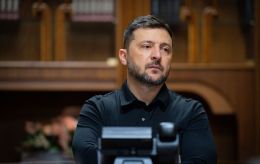Stormed palace and army in capital: Who led coup in Bolivia and how it ended
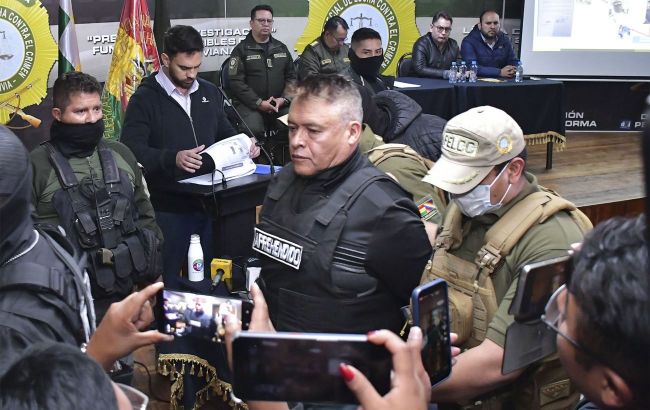 Photo: Bolivian General Juan José Zúñiga (Getty Images)
Photo: Bolivian General Juan José Zúñiga (Getty Images)
An attempted coup d'etat took place in Bolivia. The military, led by former commander Juan José Zúñiga, seized the central square in the city of La Paz and stormed the presidential palace. But in the end, the coup attempt failed.
Contents
Reasons for military uprising
Bolivia has a long history of political instability, including military coups. The situation has become more tense in recent months as the country struggles with an economic crisis triggered by dwindling foreign exchange reserves, fuel shortages, and other necessities.
The internal crisis has sparked a wave of protests in Bolivia. The uprising also took place amid the struggle between two political leaders - the current president, Luis Arce, and his former ally, ex-president Evo Morales, who were fighting for control of the ruling party.
In 2025, Bolivia is scheduled to hold an election in which the former leftist president plans to run. In 2019, Morales left office after 14 years in power under pressure from the military.
Recently, Bolivian army commander General Juan José Zúñiga said during a TV appearance that he would arrest Morales if he ran for president again next year. He was then dismissed from his post.
How events unfolded
On the evening of June 26, the army led by General Zúñiga blocked several central streets in La Paz, occupying the main square where the national executive and legislative bodies are located. A large number of armed men and military equipment have been deployed there.
Military forces are moving without orders inside the city of La Paz, Bolivia, per the President of the nation and video evidence. Bolivian sources are reporting this activity as a coup attempt. @docinkc pic.twitter.com/xGFEIGSfst
— Faytuks Network (@FaytuksNetwork) June 26, 2024
The current President of Bolivia, Luis Arce, who is a former associate of Morales, announced an alleged coup attempt. He called to "defend democracy".
The military occupied the main government buildings, while armored vehicles rammed the doors of the Bolivian government palace. The rebels broke down the doors of the residence, after which the media reported that General Zúñiga met with the president.
BREAKING:
— Megatron (@Megatron_ron) June 27, 2024
A failed coup attempt in Bolivia by US-backed General Juan José Zúñiga.
Bolivia, a dramatic coup attempt aimed at President Luis Arce was stopped in its tracks.
Armored vehicles smashed into the government palace, yet Arce stood strong, swiftly replacing the… pic.twitter.com/ttDuIyTY3f
How it ended
After the talks between the Bolivian president and the former army commander, the military left the government building. Zúñiga made several statements to the media before he was detained
El Ministerio del Interior de Bolivia presentó ante los medios de comunicación al general Juan José Zúñiga, detenido tras el intento de golpe de Estado pic.twitter.com/lijR2dEgK2
— El Necio (@ElNecio_Cuba) June 27, 2024
He said that a new cabinet would be created, and Arce would remain president "for the time being." The military accused the current government of following an authoritarian path and promised to restore democratic institutions. He also called for the release of all political prisoners, including former President Jeanine Áñez.
"The people have no future, but the army has the courage to take care of the future of our children, the welfare and progress of our people," he said.
The President and his ministers later addressed the citizens of Bolivia. He announced the replacement of military commanders. Zúñiga was replaced by General José Sánchez, who immediately ordered the military to retreat.
"We cannot allow another coup attempt to take the lives of Bolivians," said Luis Arce.
After President Arce's address, thousands of citizens took to the streets to support the current government. The leader of the uprising, General Zúñiga, was detained.
Bolivian prosecutors opened a case of terrorism and armed rebellion.
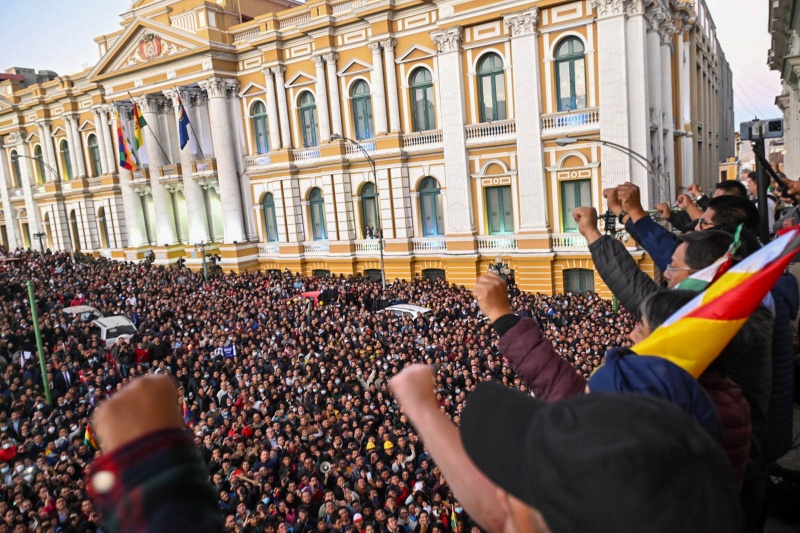
facebook.com/LuchoXBolivia
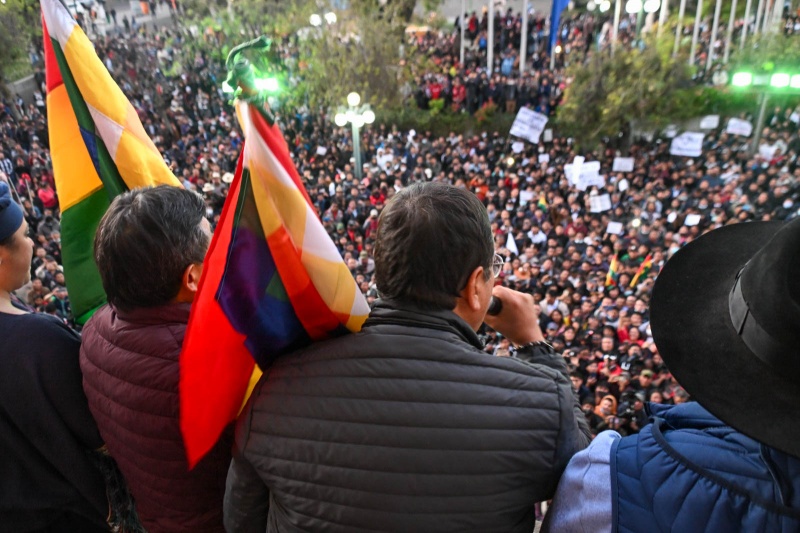
facebook.com/LuchoXBolivia
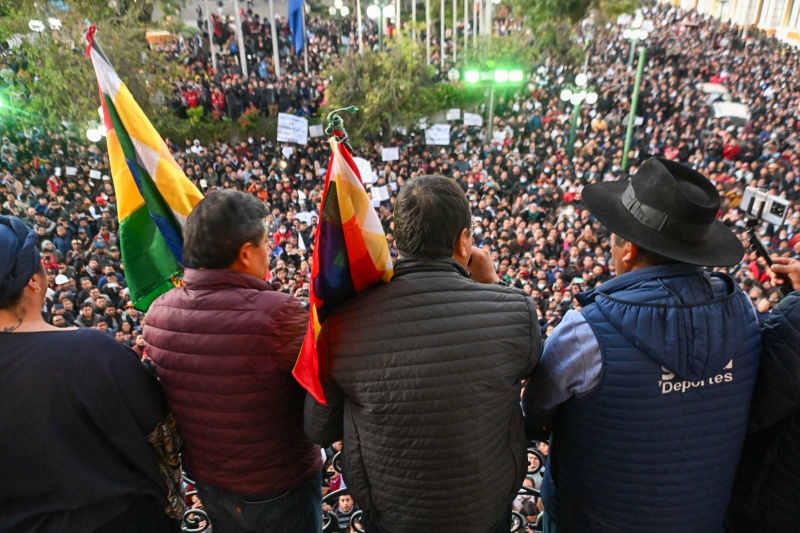
World's reaction
Neighboring South American countries - Venezuela, Brazil, Paraguay, and Mexico - have condemned the attempted coup in Bolivia.
The EU also reacted to the events in Bolivia. The head of European diplomacy, Josep Borrell, said that the EU "condemns any attempt to undermine the constitutional order in Bolivia and overthrow democratically elected governments."
Spanish Prime Minister Pedro Sánchez and British Ambassador to Bolivia Richard Porter also condemned the uprising.
Sources: CNN, Associated Press, The Guardian, Faytuks Network, Facebook of Bolivia's President.

